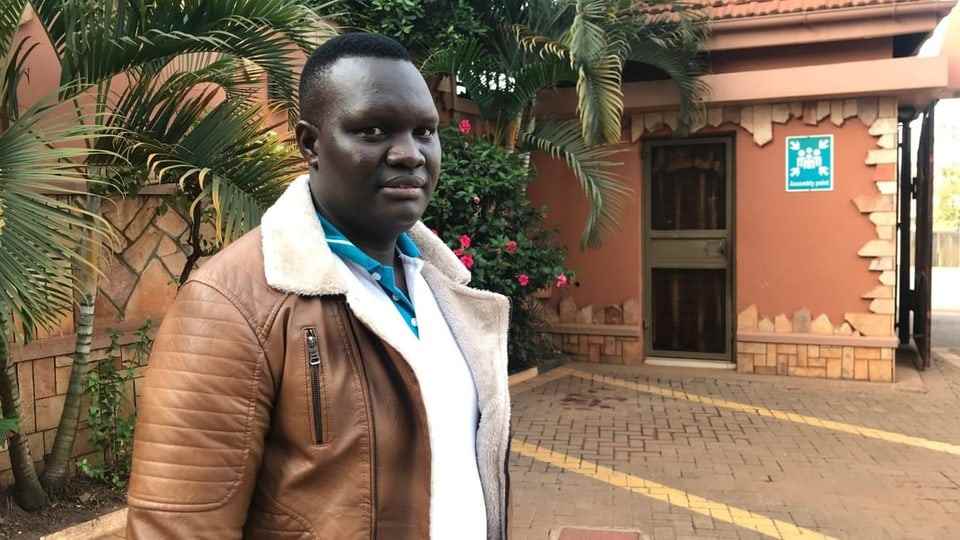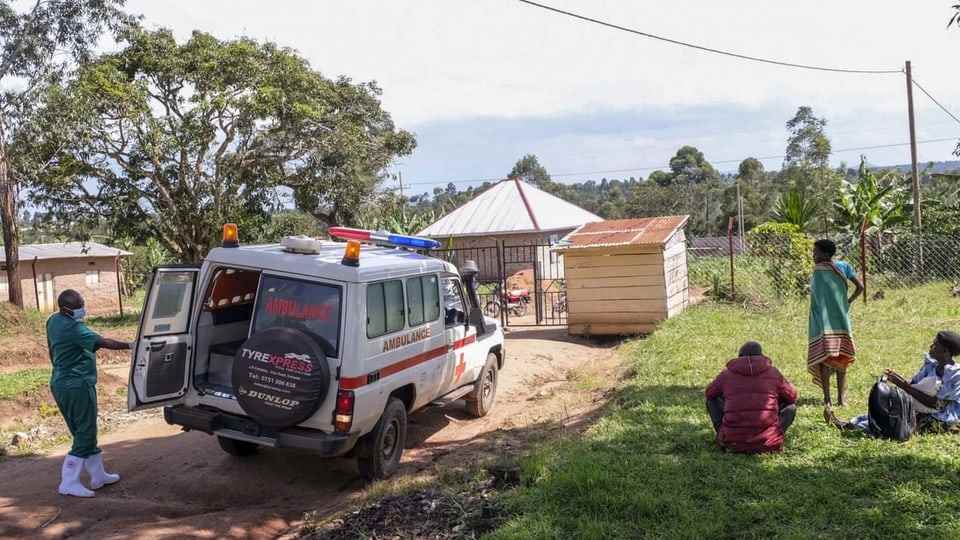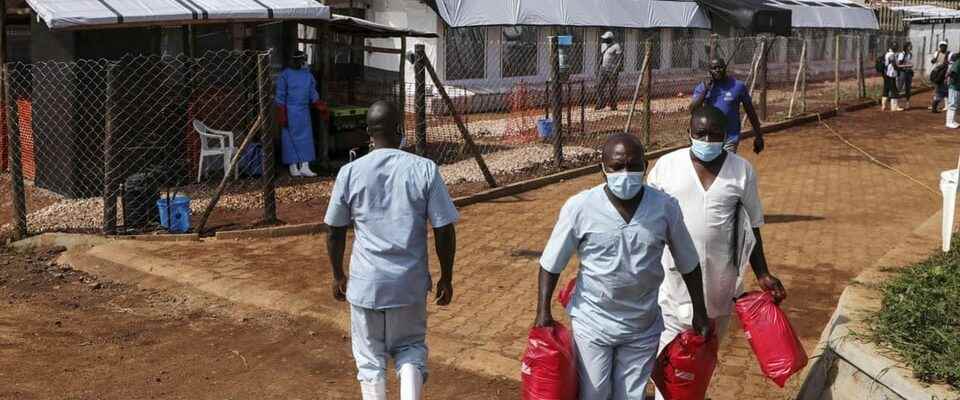contents
There is no vaccination against the current variant. Many hospitals lack equipment. 37 patients died.
In the heart of Uganda lies the small town of Mubende, a local trading center. Margret Kasima is standing in front of the hospital in Mubende, selling masks: Ebola can be transmitted via the mouth, nose and genitals: “Ebola is a danger and can affect anyone.” The pharmacist right next to the hospital sees it a little less dramatically: “We have not found any suspicious cases in our area and only hear about them on the radio or television.”
So far, however, most cases have been registered in the Mubende region. One of the first patients was treated in the hospital, as Samuel Oledo from the Uganda Medical Association explains: “The man suffered internal bleeding and underwent surgery. On the operating table, he went into cardiac arrest and died. Nobody knew he had Ebola. The doctors got infected. Two of them died.”
Legend:
The Ebola isolation area of Mubende hospital on September 29, 2022.
Keystone/AP/Hajarah Nalwadda
The Ebola virus causes fever, diarrhea, internal bleeding and death in more than half of the cases. It is transmitted through direct contact with bodily fluids. Outbreaks are believed to result from contact with animals, such as eating wild animals.
Epidemic since mid-September
In Uganda, the first person was probably infected in August. The epidemic was officially declared on September 20th. Health workers are particularly affected. In the beginning it was not protected enough. It’s better now in the Ebola centers.

Legend:
Samuel Oledo of the Uganda Medical Association points to the acute shortage of essential protective materials when treating Ebola patients.
SRF/Samuel Burri
But many of the country’s hospitals still lack protective equipment, says Samuel Oledo: “Often we only have masks, gloves and aprons. That is not enough.”
We need full body suits, rubber boots, face shields in all hospitals. We need help for this, Uganda cannot do it alone.
The aid organization Doctors Without Borders has set up an Ebola treatment tent in Mubende. So that confirmed cases and suspected cases do not have to be in the same room as was the case at the beginning.
But not only the treatment is important, but also the cooperation with the population, explains Augustin Westphal from Doctors Without Borders. The aid organization has set up a temporary office in a hotel in Mubende.
Prompt reporting is extremely important
Westphal emphasizes that Ebola patients should also be allowed to receive visitors. If only through a protective screen at a distance. The relatives should see how the patients are treated. In previous Ebola outbreaks, isolation led to fear and distrust.

Legend:
A Ugandan Red Cross worker directs people with Ebola symptoms to the ambulance in Madudu village near Mubende on September 29, 2022.
Keystone/AP/Hajarah Nalwadda
In Uganda, the number of sick people is still relatively low, 48 confirmed cases. So far there have been 37 deaths. Hardly any new cases have been added in the last few days. But it is too early to breathe a sigh of relief, because even an undetected case can cause new infections.
Waiting for vaccination is not an option
And then there is another problem: the previous Ebola vaccination does not work in Uganda. The current outbreak was triggered by the so-called “Sudan variant”.
New vaccinations against this Ebola variant are in the pipeline and are to be tested soon – but one should not rely on an early vaccination, explains country coordinator Westphal: “Today we have to concentrate on today. Vaccination might help in the future and we can do research on it. But if we wait for the vaccine, it may be too late.
Today we must focus on today. If we wait for the vaccination, it may be too late.
What remains important: trace contacts and go to the hospital quickly if you suspect Ebola. And in general: wash your hands. Without vaccination, Uganda can only win the fight against Ebola with classical methods.
